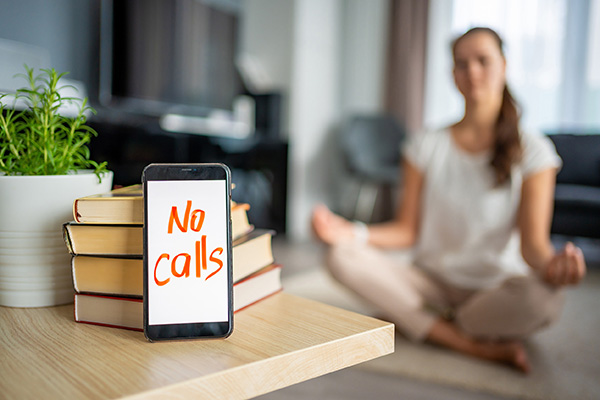anxiety
Small Gestures Of Kindness In A Time Of Cruelty
 Many people are feeling anxious or uncertain in recent years with everything that has been happening in the world.
Many people are feeling anxious or uncertain in recent years with everything that has been happening in the world.
Some are fearful and others stressed or unsure how to act appropriately in these restless times. Some even act out in destructive or dramatic ways, taking their frustration out on others.
It is common knowledge that the digital age and social media has spawned a generation of computer warriors and online bullies who express their insecurities and fears, in often extremely mean and cruel ways, from the comfort of their living rooms and basements.
This savage lack of empathy and decorum has seemingly now spilt over into our streets and neighborhoods too.
It is easier for many to be critical and judgmental, to complain and argue, instead of facing facts, dealing with the truth and seeking lasting solutions.
Often not knowing the entire story, many people choose to see only see one side of things, while telling others off for disagreeing with their limited point of view. The computer has unfortunately given some people a platform to spread strife and hatred, instead of love, hope and kindness.
I pray that more people will strive to seek the truth and learn to look for the good and kind in others. Showing tolerance, patience and kindness is always the better, more open approach. And always remember that if someone attacks you directly, then it often means they are somehow struggling or hurting. It usually serves no real purpose to attack them back. Continue reading
How To Anchor Yourself In Any Storm
 Happiness, peace, calm, no drama. This is the way of life we all really strive for and long for. We even design our lives in such a way as to create the illusion of having attained this.
Happiness, peace, calm, no drama. This is the way of life we all really strive for and long for. We even design our lives in such a way as to create the illusion of having attained this.
Yet, life happens. There are stresses. There are arguments, fights, heartaches. Yes, there is pain.
We sometimes find ourselves in situations not of our own making, and circumstances that anger us. Yet, at the end of each day, if we can go to bed knowing we were honest, and we did what we believed with all our heart was right, then we have inner peace and happiness.
Yes, we all do make mistakes. We do things out of anger or hurt, then later regret. But if we work hard to try to resolve the situation, we can be happy within ourselves.
No one can say words to us that bring us to unhappiness; no one can take actions that hurt us if we don’t let it destroy our faith within.
Becoming the rock in the middle of the storm is key. We must keep our mind clear, not let others tell us that we are no good, and avoid trying to become what others want us to be.
We have to be what the spirit within tells us to be. Then we will be happy. We will be anchored in the center of the storm.
In all our lives, there comes a time to make major decisions. Our first wisest choice is to ask the Creator, our Higher Power, through our prayers and meditations, what is best. The second is to get expert opinions.
The Power Of Psychic Prediction
 The future is fluid and dynamic, and responds to the forces of the present moment. Feeling peaceful, grounded and centered in the present moment is a feeling we all strive to experience every day, but the challenges of life often pulls in memories of the past, and worries about the future.
The future is fluid and dynamic, and responds to the forces of the present moment. Feeling peaceful, grounded and centered in the present moment is a feeling we all strive to experience every day, but the challenges of life often pulls in memories of the past, and worries about the future.
Thoughts of the future can bring up fear and anxiety as we face the unknown, especially when viewed through current life challenges. In such challenging times you may want to consider reaching out to a psychic advisor, for clarity and support in navigating the path ahead. In my own life I have valued the support of a trusted fellow psychic advisor, especially during emotional and challenging times.
We all experience difficult times, and having someone hold a vision for us about our future path can be highly valuable. Someone to see the divine order in unforeseen events, and show us a way through the uncertainty, despite the challenges and broken pieces of the present. This reassurance helps to strengthen our resolve and belief in ourselves and our future.
As a psychic reader, I have great awareness of the power of a prediction. I believe that the true gift in a prediction is that they can provide a preparedness for the journey ahead, and they can anchor us in faith and hope. Faith is to have trust in something or someone, and it is a source of comfort.
Asking the Divine about the likelihood of future outcomes shows an open-heartedness and desire to see beyond the current. It also says to the Divine, show me the way. Guide me the vision, so that I may walk with more clarity and an open mind and heart.
Remember To Wear Your Protection Daily
 Many of my clients complain feeling drained by people around them. These energy thieves can be found in their work environment, and among friends or family. In turn, what affects them energetically, also affects their pets.
Many of my clients complain feeling drained by people around them. These energy thieves can be found in their work environment, and among friends or family. In turn, what affects them energetically, also affects their pets.
Only yesterday, I was driving one of our local veterinarians back to her practice in town. I had brought her out to our place in the country to check our latest rescue dog; he is still too nervous to get into the car.
She then started telling me, with no prompting from me, how her customers are draining her. She feels that her animal patients are profoundly affected by their owners’ moods. The vet said she takes a few days off intermittently to recharge her batteries – not from the work she loves, but from the pet owners!
When I saw psychic medium John Edward perform live, he was stressing how important it is to wear our energy or psychic protection. “Wear it like a condom,” he said. I have since adopted this motto as my own, because it really nails the importance of wearing protection from negative energies around you.
We dress according to climate changes, and so, we must also wear the appropriate psychic protection for our own inner ‘climatic changes.’
We are all vulnerable to external energy vibrations, but at times this threat intensifies. We are especially more open to taking on external ‘stuff’ when we are anxious, tired, going through personal changes, and when are under the influence of any mind-altering substance.
Learning To Say Yes To Yourself
 It is in the empath’s nature to say ‘yes’ to just about anything requested of them. It goes against our grain. For some of us, saying ‘no’ also brings on fears of rejection, abandonment or letting someone down when it may be important to support them.
It is in the empath’s nature to say ‘yes’ to just about anything requested of them. It goes against our grain. For some of us, saying ‘no’ also brings on fears of rejection, abandonment or letting someone down when it may be important to support them.
Rather than finding an excuse, or simply telling the truth, many of us give in and just go along. It just feels easier in the moment, and even validating or satisfying.
But when you end that phone call, or respond to another text, and you feel anxious and panicked, while you start going over all the other things that will have to fall to the wayside by saying yes, then you really are saying no to yourself.
Self-care requires that we sometimes say no to others, in order to say yes to our own well-being and peace of mind. Consequently, the person that you said yes to won’t be getting the best of you. If you have said yes at your own expense, then what you bring to the table for that person is stress and anxiety. Your best self will not be fully present.
Saying yes, when you really want to say no, can also lead to resentment that you then attach to the person who asked for your assistance.
Here the responsibility lies with ourselves. We teach people how to treat us and many times we don’t give others enough credit for understanding when we say no. Most people would rather hear. “No thanks, that time doesn’t work for me” or “I have other commitments,” instead of having to sense a half-hearted or less than enthusiastic yes.
Finding More Balance In A Busy World
 Do you ever feel the busier you become, the harder it is to remain focused and stay in control of everything? Then you are not, I promise you, alone! Sometimes life can seem like you are always juggling and struggling, but not always winning as a result.
Do you ever feel the busier you become, the harder it is to remain focused and stay in control of everything? Then you are not, I promise you, alone! Sometimes life can seem like you are always juggling and struggling, but not always winning as a result.
As a professional psychic, I have always been of the opinion that if we want something to manifest in the material world, we have to get the inside of ourselves, as well as our lifestyles, balanced and more harmonious first. Otherwise, we would simply attract more chaos.
By putting ourselves in a healthy, positive, and balanced place, we not only draw more abundance to ourselves, but we also achieve a less stressful lifestyle as a result.
This is not just spiritual philosophy; it’s energetic truth. The Universe is always responding to the vibration we emit. When we’re frantic, overextended, or emotionally scattered, we become magnets for more of the same.
But when we take steps to ground ourselves, reconnect with our inner guidance, and honor our natural rhythms, something beautiful happens: the energy around us begins to shift.
This shift isn’t just internal because others begin to notice it too. Opportunities feel more aligned, relationships grow more authentic, and daily life feels less like a struggle and more like a sacred flow. In essence, when we become energetically clear, we create space for the Universe to meet us halfway. That’s where true transformation begins. Continue reading
